Review of Offshore Jurisdictions (Part 1)
Volume V, Number 1 – January/February 1996
REVIEW OF OFFSHORE JURISDICTIONS:
Volume I: The Cook Islands
INTRODUCTION.
With this issue we begin a periodic review of selected offshore jurisdictions. These reviews will cover such factors as the legal system, the geographic location, communications facilities, availability of professional services, and other items we deem pertinent. Some of the jurisdictions reviewed are regarded by us to be unsuitable for the establishment of an asset protection trust (APT), but will be included because they have either received publicity or promoted themselves as asset protection jurisdictions. As indicated by the above subtitle, in this issue we will review the Cook Islands (the “Cooks”).
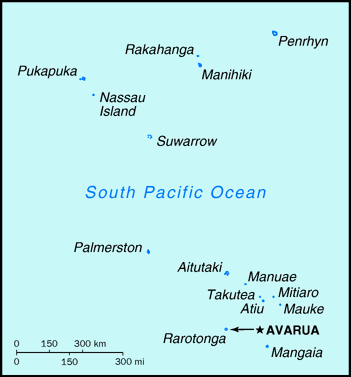
BACKGROUND
The Cooks are an independent member of the British Commonwealth consisting of fifteen islands located in the South Pacificapproximately 1850 miles northeast of Aukland, New Zealand, in an area referred to in maps as “Oceania”. The capital, Avarua, is located on Rarotonga, the largest of the 15 islands, and essentially the country’s only commercial and business center. Although the Cooks gained their independence from New Zealand in 1965, they are still very closely associated with that country. The Cooks are an English-speaking common law jurisdiction with adequate communications facilities and professional services, including banking. The Cooks are considered to be politically stable, and have no treaty of any kind in force with the United States or any other country.
IMPORTANT LEGISLATION & RAMIFICATIONS
The Cooks first adopted protective trust legislation in 1984. That legislation has been amended several times since then, each time fine tuning and strengthening the law. The protective trust law adopted by the Cooks (and other asset protection jurisdictions) may be viewed as a remediation of what is perceived as an erosion of the protection historically afforded by the use of the trust.
For example, a doctrine has developed in trust law over the years by which a trust may be declared invalid if the settlor retains too many controls over the trust.

A similar rule has evolved which provides that a settlor-beneficiary may not utilize a trust to protect assets from his or her creditors. The law of the Cook Islands specifically addresses these weaknesses and provides that a trust cannot be declared invalid or otherwise be affected in any way by reason of the fact that the settlor retains significant controls over and/or is a beneficiary of a Cook Islands trust, and the law authorizes the establishment of spendthrift (protective) trusts for any beneficiary – including the settlor. Another very important aspect of the Cooks’ protective legislation is embodied in its comprehensive fraudulent transfer law.
This law, coupled with the fact that another Cook Islands law will not give effect to the judgment of a court of another country which is inconsistent with Cook Islands law, provides an impenetrable obstacle to a creditor’s attack on a properly structured and implemented Cook Islands trust. In the last issue of APN (Vol. IV, No. 4) we revisited the fraudulent transfer laws generally in effect in the United States.
Among other things, our laws provide that a court may take into account a variety of factors in determining whether a transferor possessed the requisite intent to cause his transfer to be a fraudulent transfer. We also saw that if a transfer is found to be fraudulent as to any creditor, the entire transfer is undone. Under the Cooks’ fraudulent transfer law, if a settlor is solvent when the trust is established (or when a transfer is made to the trust), he is deemed not to have the requisite fraudulent intent.
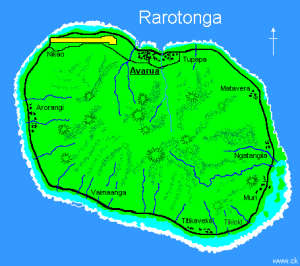
In addition, the Cooks’ law negates several of the factors a US court could consider in ascertaining fraudulent intent – those factors just don’t count. In those rare cases where a fraudulent transfer case can be brought in the Cooks, the creditor must generally bring his suit within a very short time (usually not longer than 2 years), and he must prove his case beyond a reasonable doubt. This is a difficult standard of proof reserved for criminal cases in this country (can you forget the O.J. Simpson case?). If a creditor is (somehow) successful in this endeavor, the entire transfer is not undone (as in the US), but only so much of the transfer as is necessary to satisfy that particular creditor.
The next creditor must separately go through the same entire process! Since the Cook Islands would not be the appropriate venue to bring a case against a settlor who committed a tort (i.e., someone slipped and fell on his property) or breached a contract, etc., the only type of case which can be brought against an APT as a result of the settlor’s actions will be a fraudulent transfer case. Because our legal process moves so slowly, by the time the creditor can start his case in the Cooks, it will usually be too late.
OTHER IMPORTANT LEGISLATION
Under certain circumstances, it may be important for an APT to be able to “move” to or from its original situs jurisdiction. The Cook Islands legislation fully recognizes and implements this requirement by, among other things, allowing a trust to redomicile to the Cooks, and then deeming it to have always been a Cook Islands trust. This essentially results in a retroactive application of the Cooks’ protective trust laws. In some jurisdictions, a settlor’s bankruptcy, even many years after the establishment of a trust, will result in the trust being invalidated.
The Cooks’ law specifically states that a settlor’s bankruptcy will not affect the validity of his APT unless a fraudulent transfer was involved (in which case those rules will apply). Finally, for those persons transferring community property to an APT, the Cooks’ law specifically preserves the community property nature of the assets, thus retaining the “double” estate tax step-up in basis realized by residents of our community property states.
CONCLUSION
The Cook Islands is an ideal jurisdiction for the establishment of an APT.
Donlevy-Rosen & Rosen, P.A. is law firm with a national practice focused on asset protection planning and offshore trusts. Peer rated for highest level of professional excellence, and internationally recognized authorities in the field of asset protection planning. Find out the difference our law firm can offer when protecting your assets, contact us









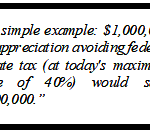
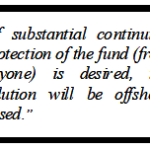



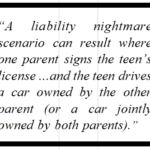
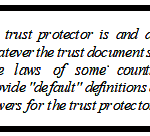



Connect
Connect with us on the following social media platforms.